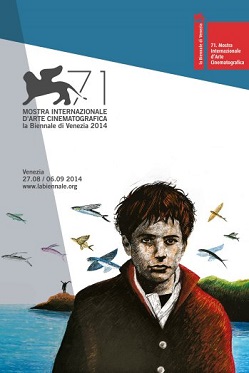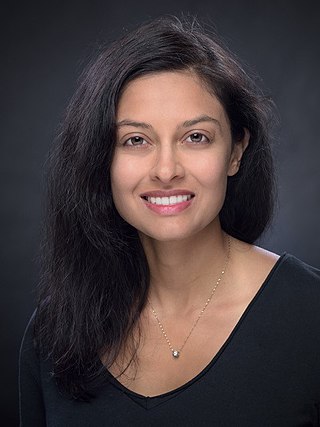Related Research Articles
Archibald Leman Cochrane was a Scottish physician noted for his book, Effectiveness and Efficiency: Random Reflections on Health Services. The book advocated the use of randomized controlled trials (RCTs) to make medicine more effective and efficient. His advocacy of RCTs eventually led to the development of the Cochrane Library database of systematic reviews, the establishment of the UK Cochrane Centre in Oxford, and the international Cochrane Collaboration. He is known as one of the fathers of modern clinical epidemiology and evidence-based medicine and is considered to be the originator of the idea of evidence-based medicine in the current era.

Kamran Abbasi is the editor-in-chief of the British Medical Journal (BMJ), a physician, visiting professor at the Department of Primary Care and Public Health, Imperial College, London, editor of the Journal of the Royal Society of Medicine(JRSM), journalist, cricket writer and broadcaster, who contributed to the expansion of international editions of the BMJ and has argued that medicine cannot exist in a political void.
Overdiagnosis is the diagnosis of disease that will never cause symptoms or death during a patient's ordinarily expected lifetime and thus presents no practical threat regardless of being pathologic. Overdiagnosis is a side effect of screening for early forms of disease. Although screening saves lives in some cases, in others it may turn people into patients unnecessarily and may lead to treatments that do no good and perhaps do harm. Given the tremendous variability that is normal in biology, it is inherent that the more one screens, the more incidental findings will generally be found. For a large percentage of them, the most appropriate medical response is to recognize them as something that does not require intervention; but determining which action a particular finding warrants can be very difficult, whether because the differential diagnosis is uncertain or because the risk ratio is uncertain.

Narrative Medicine is the discipline of applying the skills used in analyzing literature to interviewing patients. The premise of narrative medicine is that how a patient speaks about his or her illness or complaint is analogous to how literature offers a plot with characters and is filled with metaphors, and that becoming conversant with the elements of literature facilitates understanding the stories that patients bring. Narrative Medicine is a diagnostic and comprehensive approach that utilizes patients' narratives in clinical practice, research, and education to promote healing. Beyond attempts to reach accurate diagnoses, it aims to address the relational and psychological dimensions that occur in tandem with physical illness. Narrative medicine aims not only to validate the experience of the patient, it also encourages creativity and self-reflection in the physician.
A public health intervention is any effort or policy that attempts to improve mental and physical health on a population level. Public health interventions may be run by a variety of organizations, including governmental health departments and non-governmental organizations (NGOs). Common types of interventions include screening programs, vaccination, food and water supplementation, and health promotion. Common issues that are the subject of public health interventions include obesity, drug, tobacco, and alcohol use, and the spread of infectious disease, e.g. HIV.
The International Health Regulations (IHR), first adopted by the World Health Assembly in 1969 and last revised in 2005, are a legally binding rules that only apply to the WHO that is an instrument that aims for international collaboration "to prevent, protect against, control, and provide a public health response to the international spread of disease in ways that are commensurate with and restricted to public health risks and that avoid unnecessary interference with international traffic and trade". The IHR is the only international legal treaty with the responsibility of empowering the World Health Organization (WHO) to act as the main global surveillance system.
Health communication is the study and practice of communicating promotional health information, such as in public health campaigns, health education, and between doctor and patient. The purpose of disseminating health information is to influence personal health choices by improving health literacy. Health communication is a unique niche in healthcare that allows professionals to use communication strategies to inform and influence decisions and actions of the public to improve health.
Graphic medicine connotes the use of comics in medical education and patient care.

The 71st annual Venice International Film Festival took place in Venice, Italy between 27 August to 6 September 2014. The festival opened with Alejandro G. Iñárritu's film Birdman, and closed with Ann Hui's drama film The Golden Era. Italian actress Luisa Ranieri hosted the opening and closing nights of the festival. The Swedish film A Pigeon Sat on a Branch Reflecting on Existence, directed by Roy Andersson, won the Golden Lion, and Joshua Oppenheimer's The Look of Silence won the Grand Jury Prize.

Sir Paul Anthony Cosford was a British emeritus medical director at Public Health England (PHE), the UK's public health agency, later replaced by the UK Health Security Agency. He had executive roles from 2010 at PHE's predecessor, the Health Protection Agency. From April 2013 to 2019 he was PHE's Medical Director and Director for Health Protection, making him responsible for advising on services to prevent and control infectious diseases and for preparations and responses to public health emergencies. He led the MMR vaccine catch-up campaign in response to the resurgence of measles following the MMR Scare, and contributed to the response to the 2014 Ebola outbreak, the Grenfell disaster in 2017, and the 2018 Novichok poisonings in Salisbury and Amesbury. Over the course of his career in public health he led programmes to reduce hospital-acquired infections and tuberculosis, and oversaw ways of dealing with health inequalities, tobacco, obesity, and responses to pandemic flu.
Walter Werner Holland was an epidemiologist and public health physician.
Jill Wruble is a radiologist and fellow at Johns Hopkins Medicine who is best known as a speaker on overdiagnosis due to incidental imaging finding in United States medicine.
The Public Health Film Society (PHFS), is a charity registered in the UK (no. 1160590). It was established in 2014 by four public health specialist from Oxford - Dr Uy Hoang, Dr Olena Seminog, Dr Sam Williamson and Dr Stella Botchway, most of whom had been involved in the Oxford Public Health Film Club.

Devi Lalita Sridhar FRSE is an American public health researcher, who is both professor and chair of global public health at the University of Edinburgh, Scotland. Her research considers the effectiveness of public health interventions and how to improve developmental assistance for health. Sridhar directs the University of Edinburgh's Global Health Governance Programme which she established in 2014.

Jocalyn Clark is a Canadian Public Health Scientist and the International Editor of The BMJ, with responsibility for strategy and internationalising the journal's content, contributors and coverage. From 2016 to 2022, Jocalyn was an Executive Editor at The Lancet, where she led the Commentary section, coordinated peer review, and edited and delivered collections of articles and Commissions on topics such as maternal and child health, oral health, migration, end of life care and gender equity. She led the Lancet's project to advance women in science, medicine, and global health, #LancetWomen. She is also an Adjunct Professor of Medicine at the University of Toronto and an Honorary Associate Professor at the Institute for Global Health at UCL.

The Public Health Act 1984 is a piece of legislation for England and Wales which requires physicians to notify the 'proper officer' of the local authority of any person deemed to be suffering from a notifiable disease. It also provides powers to isolate infected individuals to prevent the spread of such a disease. The act forms the basis of various legislation connected to the COVID-19 pandemic in the United Kingdom.

Margaret Mary McCartney is a general practitioner, freelance writer and broadcaster based in Glasgow, Scotland. McCartney is a vocal advocate for evidence-based medicine. McCartney was a regular columnist at the British Medical Journal. She regularly writes articles for The Guardian and currently contributes to the BBC Radio 4 programme, Inside Health. She has written three popular science books, The Patient Paradox, The State of Medicine and Living with Dying. During the COVID-19 pandemic, McCartney contributed content to academic journals and broadcasting platforms, personal blog, and social media to inform the public and dispel myths about coronavirus disease.
Abraar Karan is an American global health physician and researcher. He was active in the COVID-19 epidemic response in Massachusetts and involved nationally through his contributions to lay press media platforms. He is a columnist at the British Medical Journal, a contributor at the National Public Radio, and regularly writes in the lay press.

Gabriel John Scally FFPHM is an Irish public health physician and a former regional director of public health (RDPH) for the south west of England. He is a visiting professor of public health at the University of Bristol and is a member of the Independent SAGE group, formed during the COVID-19 pandemic in 2020. He is also chair of the trustees of the Soil Association. Previously he was professor of public health and planning, and director of the World Health Organisation (WHO) Collaborating Centre for Healthy Urban Environments, both at the University of the West of England (UWE). He was president of the section of epidemiology and public health of the Royal Society of Medicine, a position he took in 2017.

Ama de-Graft Aikins is a British-Ghanaian Social Psychologist who is currently a British Academy Global Professor at University College London's Institute of Advanced Studies. Her research focuses primarily on the psychosocial and structural drivers of Africa's chronic non-communicable disease burden, but she also has interests in arts and health, and the history of psychology in Africa and its intersections with critical theory and African Studies. She has held teaching and research positions at the University of Cambridge, London School of Economics and Political Science and the University of Ghana. In 2015, she became the first female full professor of psychology at the University of Ghana, where she has a tenured position.
References
- ↑ Botchway, Stella; Hoang, Uy (1 January 2016). "Reflections on the United Kingdom's first public health film festival". Perspectives in Public Health. 136 (1): 23–24. doi:10.1177/1757913915619120. PMID 26702114. S2CID 21969020.
- ↑ Beth Hibbert (29 October 2013). "A film festival for health". BMJ. 347: f6509. doi:10.1136/bmj.f6509. PMID 24169093. S2CID 29866039 . Retrieved 26 July 2017.
- ↑ "Public Health Film Festival". IMDb .
- ↑ "Public Health Film Festival - TORCH". Torch.ox.ac.uk. Archived from the original on 1 May 2017. Retrieved 26 July 2017.
- ↑ Hoang, U.; Luna, P.; Russell, P.; Bergonzi-King, L.; Ashton, J.; McCarthy, C.; Donovan, H.; Inman, P.; Seminog, O.; Botchway, S. (1 March 2018). "First International Public Health Film Competition 2016—reflections on the development and use of competition judging criteria". Journal of Public Health . 40 (1): 169–174. doi: 10.1093/pubmed/fdx022 . PMID 28369436.
- ↑ "Public Health Film Competition 2016". Publichealthfilms.org. 12 September 2016. Retrieved 9 December 2018.
- ↑ "International Public Health Film Competition 2018". Publichealthfilms.org. 10 October 2018. Retrieved 9 December 2018.
- ↑ "International Public Health Film Competition 2020". Publichealthfilms.org. 27 October 2020. Retrieved 22 November 2020.
- ↑ Hoang, U.; Sharma, K.; Russell, P.; Bergonzi-King, L.; Kapoor, N.; Rae, M.; Seminog, O. (4 February 2021). "Reflections on running an International Public Health Film Competition during the COVID-19 pandemic and implications for future film festivals". Journal of Communication in Healthcare . 14: 8–11. doi:10.1080/17538068.2021.1878751.
- ↑ "'Lucy: Breaking the Silence' scoops our inaugural Audience Award". Publichealthfilms.org. 9 December 2018. Retrieved 9 December 2018.